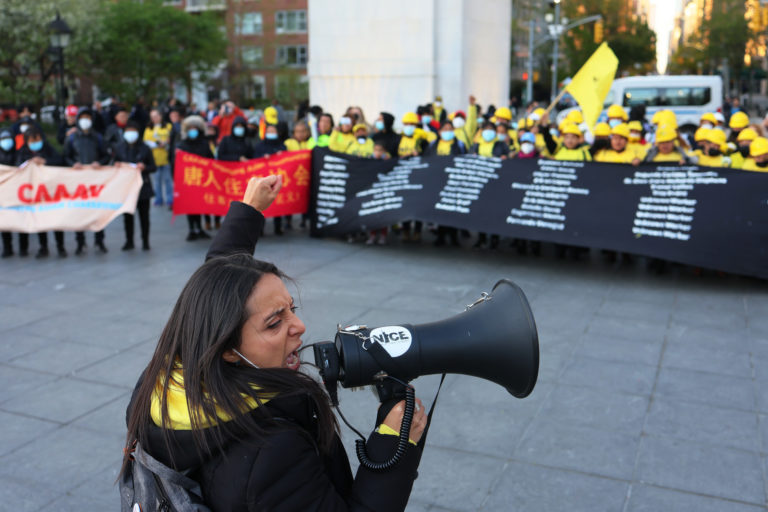
Swap Agrawal is a student at Harvard Law School.
In this weekend’s news and commentary, the WGA resumes talks with the AMPTP, and California Labor Federation leader Lorena Gonzalez calls on California legislators to extend unemployment insurance to striking workers.
On Friday, the Writers Guild of America (WGA) said that it was considering a new proposal that the union received from the Alliance of Motion Picture and Television Producers (AMPTP), marking the resumption of negotiations between the two entities since talks stalled on May 1. “Your Negotiating Committee received a counterproposal from the AMPTP today,” the WGA wrote in a memo to its members on Friday afternoon. “We will evaluate their offer and, after deliberation, go back to them with the WGA’s response next week.” The WGA had previously stated that the AMPTP had to provide a counterproposal that addressed all of the union’s key concerns as well as issues arising from the strike in order for talks to continue. Meanwhile, the AMPTP has insisted that any new WGA deal must match the one reached with the Directors Guild in June. As Michelle reported last week, the union’s major points of disagreement include minimum employment levels for writers’ rooms, writers’ entitlements to streaming residuals, overall writers’ pay, and the use of AI. The Guild’s memo did not disclose any details on the latest offer from AMPTP, but it urged its members to continue showing up to the picket lines. “Sometimes more progress can be made in negotiations when they are conducted without a blow-by-blow description of the moves on each side and a subsequent public dissection of the meaning of the moves,” the statement continued. “That will be our approach, at least for the time being, until there is something of significance to report, or unless management uses the media or industry surrogates to try to influence the narrative.” Since the AMPTP traditionally negotiates with one union at a time, it’s unlikely that talks with SAG-AFTRA will resume while this new round of negotiations with the WGA take place.
On Saturday, Lorena Gonzalez, Executive Secretary-Treasurer and Chief Officer of the California Labor Federation, AFL-CIO, told Deadline that it was “shameful” that striking SAG-AFTRA and WGA workers in California are ineligible for unemployment insurance in their state. Meanwhile, their counterparts in New York and New Jersey are eligible to receive $504 a week and $830 a week respectively for up to 26 weeks while on strike. Workers in California are regarded as having left their job “voluntarily” – even if they voted against strike authorization. “Up and down the state, we don’t want a group of workers – especially the massive number of workers we have out on strike right now – to be economically insecure because they’re being forced to go out on strike,” Gonzalez told Deadline. “It’s a big gap that our legislators need to look at as a way that they can support striking workers, because the employers have already paid into this. And let’s be clear, these workers have earned unemployment insurance. If you lose your job, you’re supposed to be able to access unemployment insurance. This shouldn’t be something different.”






Daily News & Commentary
Start your day with our roundup of the latest labor developments. See all
December 19
Labor law professors file an amici curiae and the NLRB regains quorum.
December 18
New Jersey adopts disparate impact rules; Teamsters oppose railroad merger; court pauses more shutdown layoffs.
December 17
The TSA suspends a labor union representing 47,000 officers for a second time; the Trump administration seeks to recruit over 1,000 artificial intelligence experts to the federal workforce; and the New York Times reports on the tumultuous changes that U.S. labor relations has seen over the past year.
December 16
Second Circuit affirms dismissal of former collegiate athletes’ antitrust suit; UPS will invest $120 million in truck-unloading robots; Sharon Block argues there are reasons for optimism about labor’s future.
December 15
Advocating a private right of action for the NLRA, 11th Circuit criticizes McDonnell Douglas, Congress considers amending WARN Act.
December 12
OH vetoes bill weakening child labor protections; UT repeals public-sector bargaining ban; SCOTUS takes up case on post-arbitration award jurisdiction